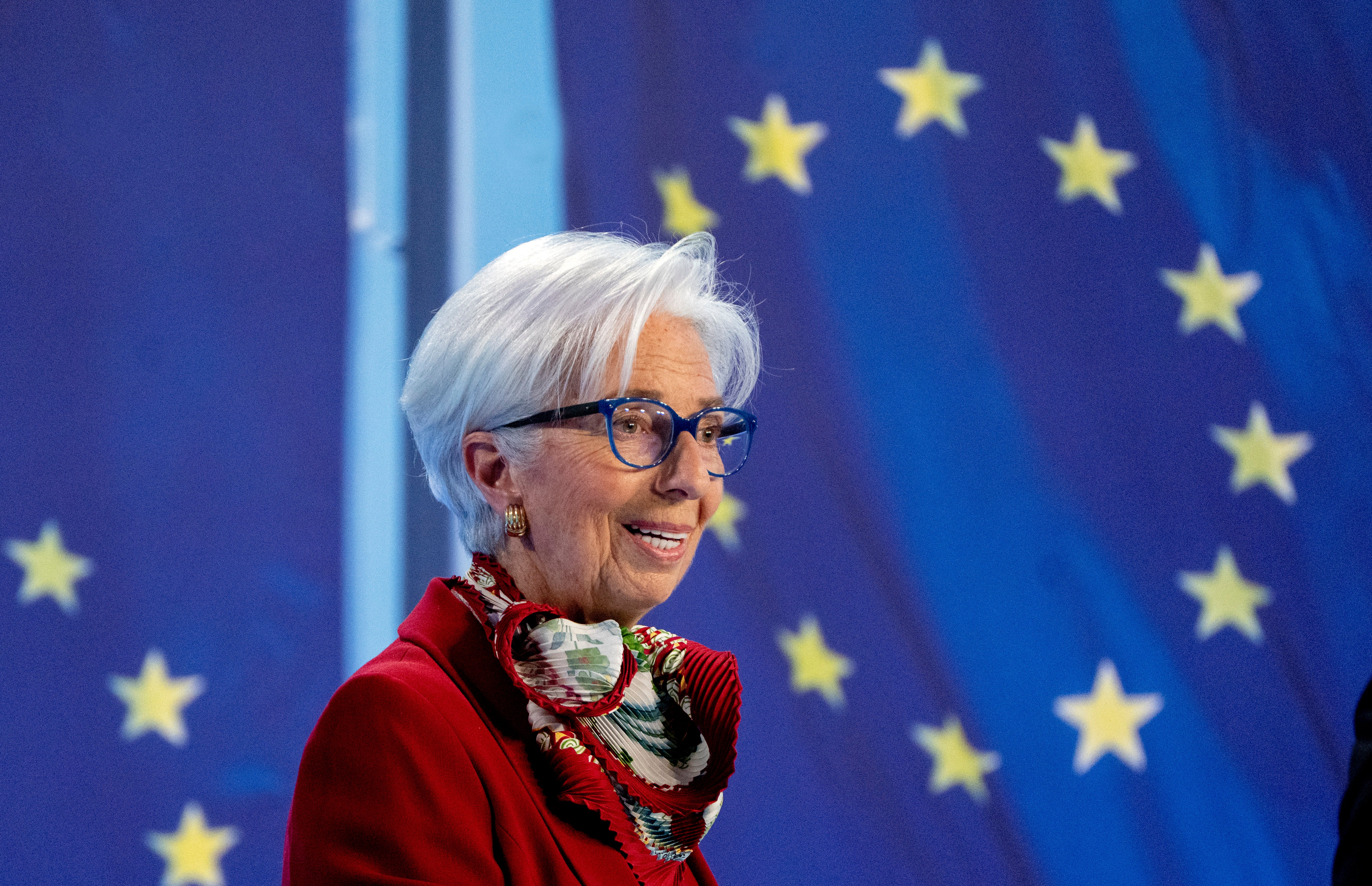ECB's Lagarde: Future rate hikes open amid banking turmoil
European Central Bank head Christine Lagarde says future interest rate decisions are open after upheaval in the global banking system has left the economic outlook more uncertain

Your support helps us to tell the story
From reproductive rights to climate change to Big Tech, The Independent is on the ground when the story is developing. Whether it's investigating the financials of Elon Musk's pro-Trump PAC or producing our latest documentary, 'The A Word', which shines a light on the American women fighting for reproductive rights, we know how important it is to parse out the facts from the messaging.
At such a critical moment in US history, we need reporters on the ground. Your donation allows us to keep sending journalists to speak to both sides of the story.
The Independent is trusted by Americans across the entire political spectrum. And unlike many other quality news outlets, we choose not to lock Americans out of our reporting and analysis with paywalls. We believe quality journalism should be available to everyone, paid for by those who can afford it.
Your support makes all the difference.European Central Bank President Christine Lagarde said future interest rate decisions are open after upheaval in the global banking system left the economic outlook “blurrier” than just a few weeks ago.
Whether to keep hiking rates would depend on incoming data, above all whether the bank could see signs that painfully high inflation is headed convincingly down, she said during a conference Wednesday at Frankfurt’s Goethe University.
“With high uncertainty, it is even more important that the rate path is data dependent,” she said. That means “we are neither committed to raise further nor are we finished with hiking rates.”
She said “the recent financial market tensions ” have “added new downside risks and have made the risk assessment blurrier."
The open-ended approach is a shift from the ECB's earlier stance of clearly indicating that more rate hikes were in the offing as it underlined its determination to reduce inflation.
But the failure of Silicon Valley Bank in the U.S. has sent shudders through financial markets due to fears that other banks may suffer losses as central banks in the U.S., Britain and Europe rapidly increase interest rates to battle inflation.
Investor worries about banks were intensified by troubles at Swiss bank Credit Suisse, which was rescued through a takeover by rival UBS. Troubles at Credit Suisse long predated the increases in interest rates, however.
The ECB raised rates by a larger-than-usual half-percentage point Thursday after all but promising the move in January. It’s targeting consumer prices that rose 8.5% last month from a year earlier in the 20 countries that use the euro currency.
Higher rates cool off inflation by making borrowing more expensive for new purchases or expanding a business, reducing demand for goods. But with the banking turmoil, commercial banks may become more hesitant to risk lending, which could restrict credit more than central banks might have intended.
The U.S. Federal Reserve is facing a similar conundrum Wednesday. Before the bank woes, the Fed was expected to raise rates by a quarter- or even half-point.
In Europe, Lagarde made clear that she sees “no tradeoff” between fighting inflation and supporting stability in the banking system. She says the ECB has separate tools for each issue: interest rates to combat price spikes and lending support to banks in case of risks.
Europe’s economic prospects brightened slightly after making it through the winter without running out of natural gas after Russia cut off most supply to the continent amid the war in Ukraine.
The German Council of Economic Experts on Wednesday raised its outlook for the eurozone’s largest economy to 0.2% growth from 0.2% contraction in its previous outlook in November.
Subscribe to Independent Premium to bookmark this article
Want to bookmark your favourite articles and stories to read or reference later? Start your Independent Premium subscription today.